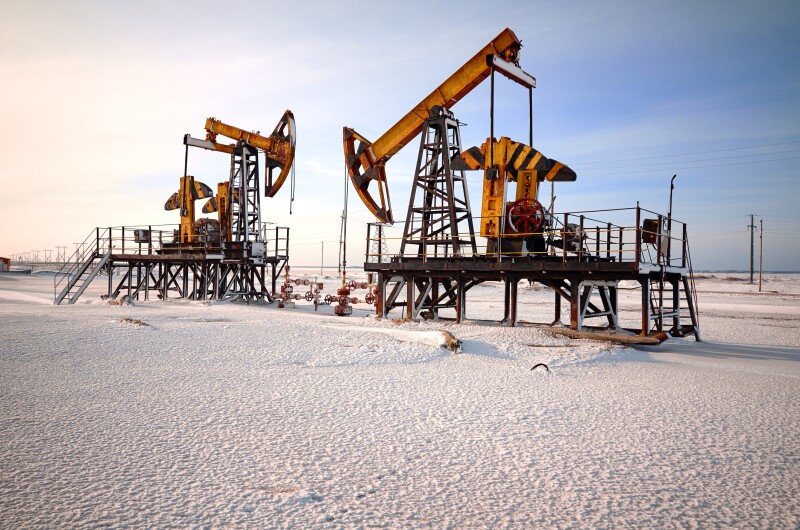The three biggest names in the oilfield service business are juggling the risks of now operating in Russia with the potential long-term rewards.
Short statements from Schlumberger, Baker Hughes, and Halliburton responded to the threat of sanctions hitting the oil and gas upstream sector with limits on their Russian investments. But only Halliburton’s statement mentioned winding down its operations there.
The first to announce is the biggest, Schlumberger. It said, “We have been evaluating our path forward and have decided to immediately suspend new investment and technology deployment to our Russia operations.”
It did not say how that would affect its long-established operation in Russia, which includes extensive operations, manufacturing, and technology centers drawing on the deep well of technical talent there.
Shortly after the invasion began, those ties drew demonstrators to Schlumberger’s offices in Sugar Land, Texas, demanding the company pull out of Russia.
Baker Hughes followed with a press release that also said it “has suspended new investments in its Russia operations.” Adding that it will continue “to comply with applicable laws and sanctions as it fulfills current contractual obligations.” In other words, it will continue to serve its customers as required in their contracts, unless new rules are imposed that will force breaking off those deals.
Neither company describes a path to ending business relationships that survived export restrictions to Russia after it invaded Crimea.
Tougher sanctions may be in the works. European leaders are reportedly considering increasing the pressure on Russia by hitting the heart of its economy—oil and gas. But a report from Reuters noted they are wary about moves that could lead to the cutoff of the flow of oil and gas from their primary supplier.
Halliburton’s statement sounded like it was taking the hardest line, saying it had “immediately suspended future business in Russia as the company complies with sanctions that prohibit transactions and work, including for certain state-owned Russian customers.” Looking ahead, it would “prioritize safety and reliability as we wind down our remaining operations in Russia.”
Other statements did not mention shutting down their operations. Of the three, Halliburton has the smallest stake in the Russian business “with no active joint ventures there,” according to the statement. It also said it “halted all shipments of sanctioned parts and products to Russia” earlier this month.
The problem faced by these big names is also affecting smaller players who have worked to establish operations in Russia using joint ventures. Bringing in a Russian partner eases the start up of running a business there. But now there is the risk that they could get caught up in added sanctions, causing serious problems for an American partner, who could see its money tied up by limits on transfers by large Russian-based banks.


